More often than not we’ve picked up self-help books and simply given up. Mostly because we end up with boring and elaborate passages that beat around the bush. Perhaps the easiest way to acknowledge ineffectual personal and professional habits and systematically work towards fixing them is to try and pick up a book penned by experts in various fields — whether psychology, neurology, biology, or philosophy — and hope it helps us or at least makes us feel like helping ourselves. But how do you tell which reads you should go for among the heaps of self-help books flooding bookstores currently? Here is a list of 10 habit-breaking books that can help you achieve a better lifestyle simply by putting your life into perspective.
1. Atomic Habits by James Clear
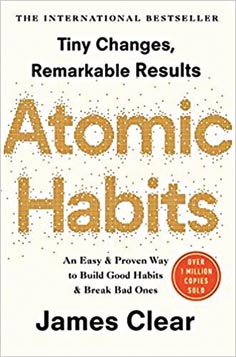
If you’re looking for someone to offer you a list of no-nonsense, practical solutions to bring a change to your lifestyle pattern, then this book by James Clear is the one for you. By getting into the nitty-gritties of habit formation, Clear offers his readers a comprehensive guide to transform the way in which they might look at their system of habits. Struggling to wake up early? To make deadlines? To get along with your coworkers? Revolutionise the way you think of your own habits by diving into personal stories from individuals who have succeeded in the “being 1% better every day” pattern that Clear advocates in Atomic Habits.
2. How to Win Friends and Influence Peopleby Dale Carnegie
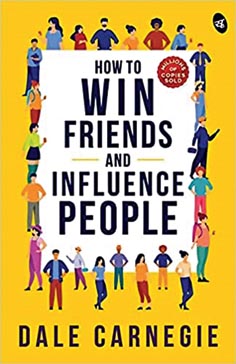
Wondering how you can be more of a people-person in your workspace or personal life? Look no further than Dale Carnegie’s How to Win Friends and Influence People, a book that opens up a vista of possibilities in terms of making friends and team-building. From genuine advice and comprehensive steps to getting along with just about anyone, Carnegie’s book carries well-researched psychological phenomena that are sure to make you the friend and confidante that you’ve always dreamed of being.
3. Thinking, Fast and Slow by Daniel Kahneman
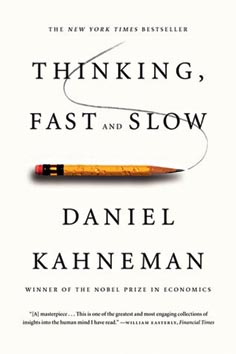
Almost all modern-day individuals struggle with the implications and consequences of daily decision-making. This book by 2002 Nobel Memorial Prize winner, psychologist and economist Daniel Kahneman can readily allay your fears — whether you’re taking care of a simple, instinctive dilemma or are stuck in the middle of a more complex conundrum. By separating the two types of thought that the human brain engages in, you can condition yourself to partake in better decision-making that doesn’t have you spiralling while thinking of the consequences of the same.
4. Why We Sleep by Matthew Walker
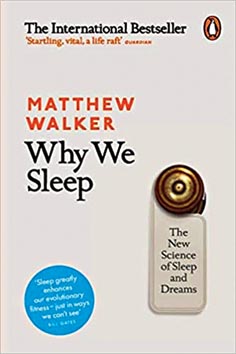
Skipping on precious hours of sleep to be more productive? You might want to think again about this lifestyle pattern since this book by Matthew Walker will change the way you rest forever. Expounding upon the many neuroscientific benefits of sleeping and resting your physical and mental processes, Walker makes it possible for you to snooze guilt-free. Instead of pulling that all-nighter to complete that assignment, you might just find yourself enhancing your productivity by getting an adequate amount of sleep every day.
5. The Art of Persuasion by Bob Burg
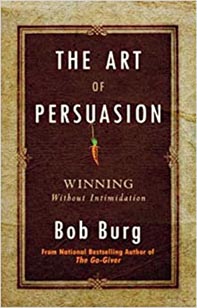
An account of the sure-shot way in which you can boost your persuasiveness, this book by Bob Burg promises to be a set of practical solutions enveloped in witty commentary throughout. Perhaps the number one skill in the modern world, persuasion is the most commonly observable ability in the most successful people of our time. Burg humorously describes how every individual possesses the ability to achieve all their life goals, no matter how seemingly unreachable, merely by being persuasive.
6. The Psychology of Money by Morgan Housel
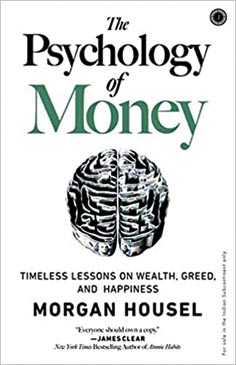
Everyone wishes that investing money could be a predictable decision, but it, unfortunately, isn’t. Individuals find themselves overwhelmed with financial errors and liabilities early on in their lives, failing to understand their own spending habits unless they’ve made some monetary blunders. With Housel’s account on The Psychology of Money, however, you don’t have to lose control of your financial resources in order to make a well-informed investment. Additionally, Housel gets up close and personal by talking about his own spending habits that are sure to leave a lasting impact on the reader.
7. Rich Dad Poor Dad by Robert Kiyosaki
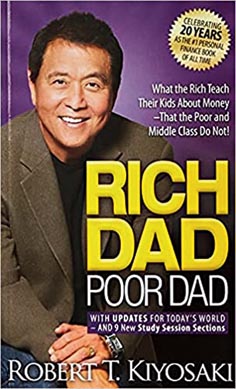
From a much more intimate account of money and the author’s experiences with it growing up, Rich Dad, Poor Dad is a relatable piece of writing on Robert T Kiyosaki’s parables of individuals who have more financial resources at their disposal as opposed to individuals who struggle to retain their money. As the reader, you’ll find yourself agreeing with all of the universal truths mentioned in this book regarding finances, while also substantially altering your own perception of everything money-related.
8. Essentialism by Greg McKeown
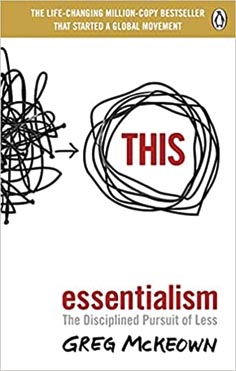
If you’ve found yourself wondering why a full day is limited to only 24 hours, then you more than likely need to give this book by Greg McKeown a read. The present-day individual finds themselves fulfilling several roles at once, eventually leading to physical and emotional burnout by the end of the day. After Greg McKeown’s Essentialism, however, you’ll realise that the simple action of prioritising your daily tasks can have you living a much easier and more fulfilling life. Go on an intellectual journey with this book in order to live the life you’ve always wanted to, without succumbing to exhaustion at the hands of the processes of the day.
9. Think Like a Monk by Jay Shetty
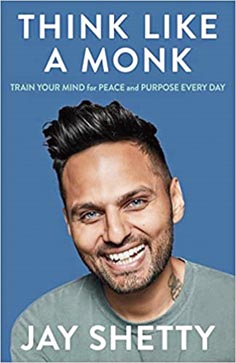
Successfully and profoundly answering the most important questions of our time, Jay Shetty’s book Think Like a Monk enables you to do just that. By instilling you with the simplistic yet crucial values of living effortlessly while keeping negativity and anxiety at bay, Shetty promises to take you on an emotional voyage while reading this account heavily peppered with autobiographical elements. After all, nothing reshapes your perspective on life like the personal successes and failures of an eminent personality.
10. Emotional Intelligence by Daniel Goleman
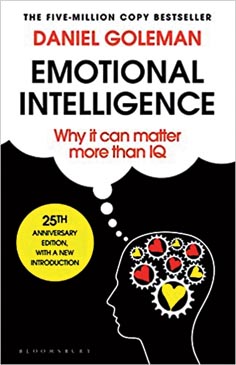
If you’ve been a firm believer of the fact that your IQ is going to shape the rest of your life, then Daniel Goleman’s Emotional Intelligence will make you think otherwise. Focussing instead on the importance of the phenomenon of emotional intelligence, Goleman talks of the interplay between intellect and emotions. Weaving his through neurology and philosophy, Goleman offers various real-life examples — and, more importantly, hope — to the average reader to hone their sense of emotional intelligence and what a life-changing experience doing so can be.










